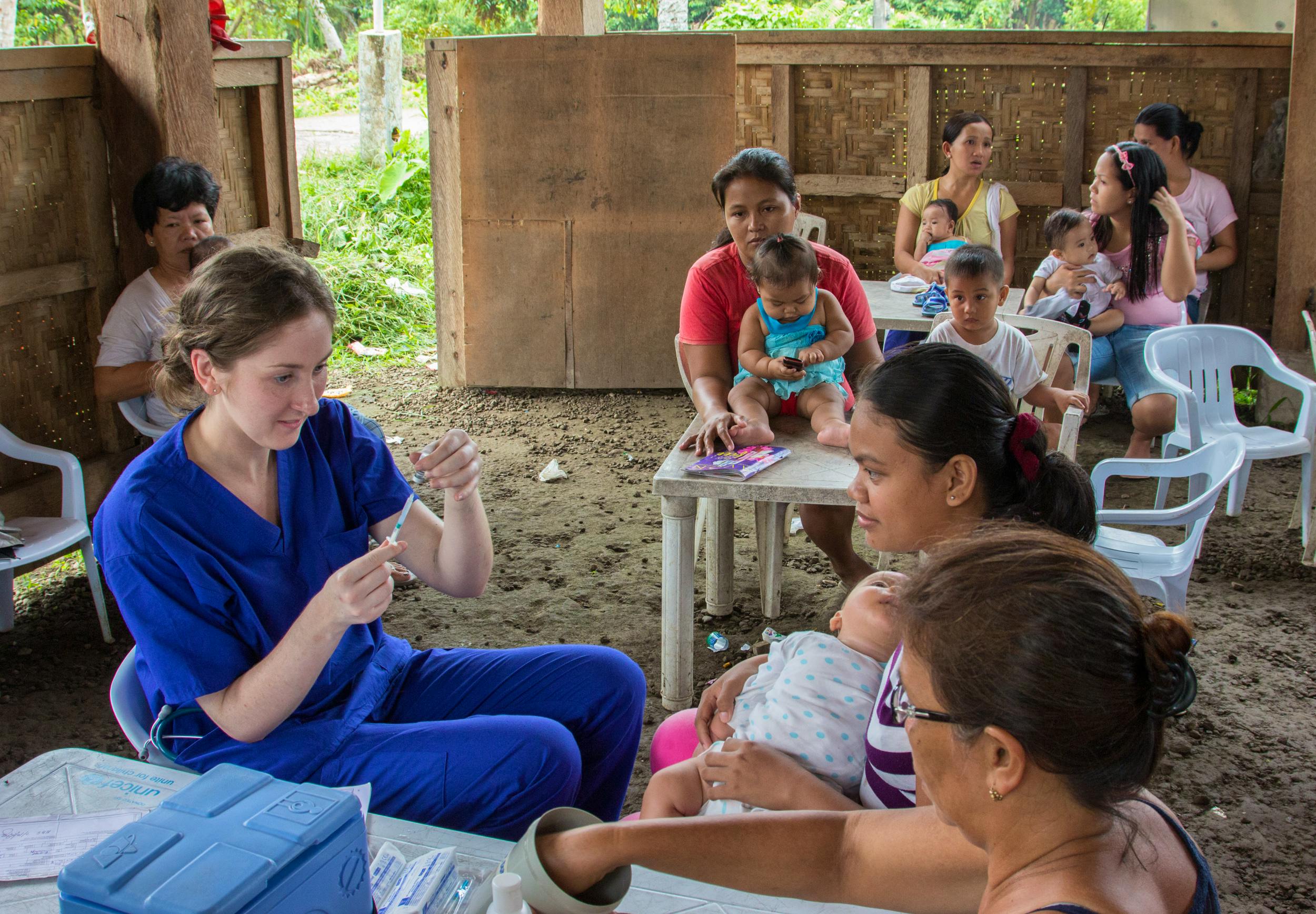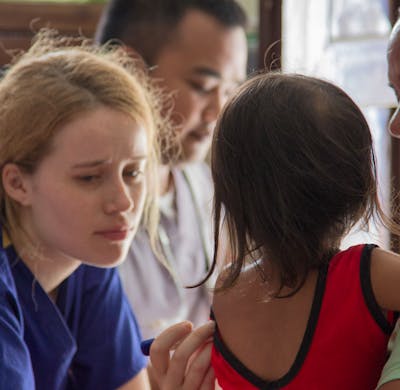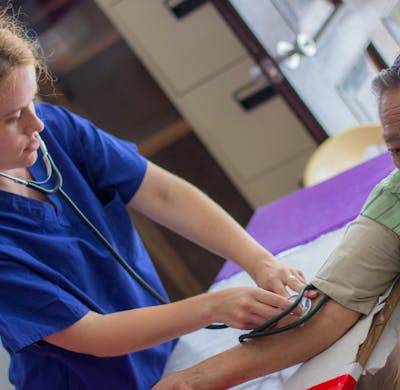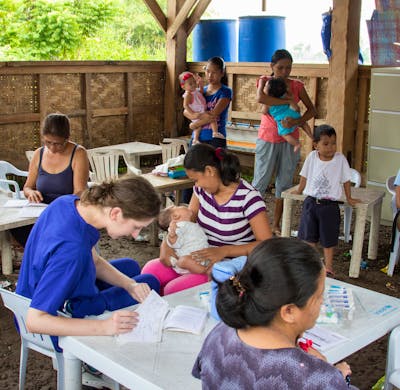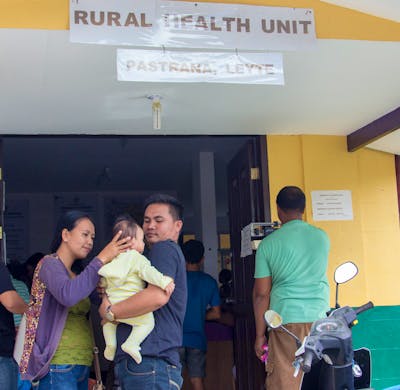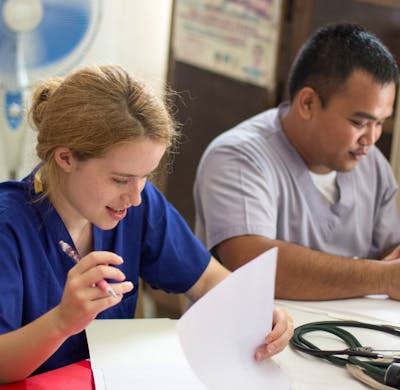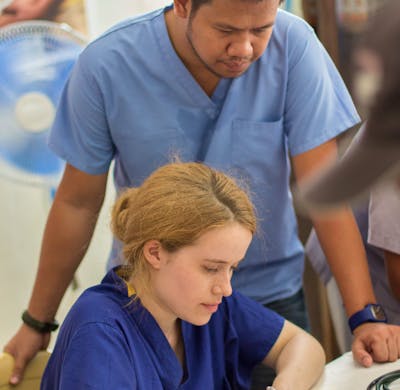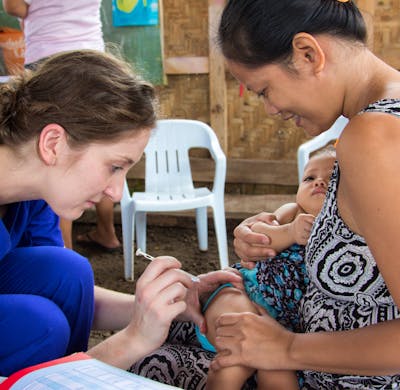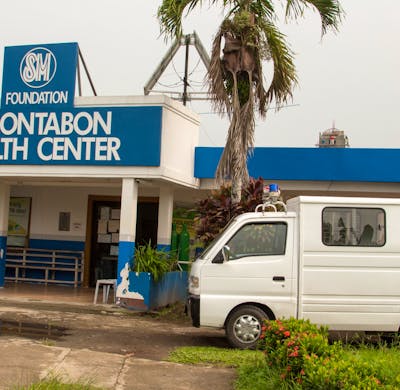About the Program
By volunteering at a Rural Health Clinic, you can help augment support to understaffed and underfunded health clinics in rural towns outside Tacloban City.
This volunteer program is great for volunteers looking to experience public health services in the Philippines or looking to apply their professional medical skills in a rewarding environment.
Rural Health Clinics serve as the main source of free basic healthcare for rural communities around Tacloban City.
It is at these clinics where one doctor and a handful of nurses have the sole responsibility of looking after a community of thousands of people whilst at the same time having only a limited number of resources at their disposal.
The clinics will benefit greatly from the services of volunteer medical professionals and qualified students. Volunteers who are being recruited include doctors, nurses, medical assistants, and medical and nursing students.
Profile
A Rural
Health Clinic
can be found in every town or municipality in the Philippines. It is headed by a public
health doctor who is a general practitioner. It also has one regular public
health nurse, one midwife and one dentist. The rest of the
nurses are employed on a 6 or 12-month contract under the special employment program of the Department of Health.
The Rural Health Clinic is a walk-in
free clinic that serves the whole community. It is a government-run
health facility that accepts patients of all ages, generally those who cannot
afford to see specialist doctors. It is open during the weekdays, from Monday
to Friday at 8 am to 5 pm except on holidays. General consultation, pediatrics, pre-natal check-ups, and dental services are provided according to their scheduled days within the week. The emergency and birthing units are however open 24/7 to attend to the patients.
As a primary healthcare facility, it
conducts general consultation, minor surgeries, immunizations, pre-natal checks,
normal deliveries, and regular village visits. The birthing clinic is
in place to cater to mothers due for normal delivery. Once it is determined
that the mother has to undergo caesarian section delivery, she will be referred to the
nearest public hospital. The medical team goes to the villages to deliver health
services. During such occasions, health education is also being conducted. The
clinic has a dental section which provides basic dental services like tooth extraction.
The clinic has no state-of-the-art medical equipment but only has the basic tools required for consultation and minor surgeries. Even supplies such as cotton,
betadine, alcohol, bandages, face mask are normally lacking. The medicines
supplied by the government is not enough and usually runs out fast. At this
point, the doctor gives the prescription and advices the patient to use their
own money to purchase the medicine.
With only one doctor who attends
seminars, conferences, meeting, and other events, it is too common to see the
doctor away and consultation suspended. The nurses on duty see patients with
minor and uncomplicated complaints but when the doctor’s expertise is required,
the patient is referred to the nearest hospital.
Why We Need You
Health care professionals unquestionably have a strong desire to help others. They work under stressful conditions, but persevere because, as they see patients improve or maintain wellness, they know they are making a difference.
The health care professionals at this rural medical clinic are making a tremendous difference in the lives of their patients. However, because of understaffing and underfunding, they are unable to adequately address the medical needs of the community. You will see for yourself how short-handed they are, and you will know from the very start that you are in a position to make a valuable contribution.
By volunteering for this program, individuals embarking on a career in health care will be able to gain valuable experience in their chosen fields. Established professionals will have the opportunity to share their knowledge and skills whilst learning about health care conditions in a developing country. Many previous volunteers have said that this placement was an eye-opener that has not only given them a new perspective of their profession, but also of their own lives.
Role of the Volunteer
The volunteer will work alongside
nurses, midwives, and the doctor.
Working hours for the volunteer is at least 4 hours daily from Monday to
Friday, 8 am to 12 noon except during holidays. During village visits, working
hours are usually extended until the afternoon.
The placement is offered medical professionals and students alike to provide them
an experience in public health. For students, the clinic also serves as
internship placement. To licensed medical professionals, clinic provides them
the means to use their knowledge to help the community.
The nature of a volunteer’s
involvement at the clinic depends on his/her qualification and skill set.
Normally, a volunteer assists in taking patient information and vitals. A
qualified volunteer can help with immunization. Pre-natal check is done
manually and is something that the volunteer can also learn to perform. Village visits are great opportunity to
observe the rural areas and assist in delivering the medical services. It is
also a good opportunity to conduct brief health lectures or distribute
brochures on important health issues.
A medical student volunteer spends more
time assisting and shadowing the doctor although he/she also works with the
other staff. A doctor volunteer works alongside the local doctor during
consultation. He/she is particularly useful when the doctor is not around,
which is too often. With the help of a local staff, usually a nurse to
translate, the doctor volunteer is given the responsibility to consult
patients. A doctor may also initiate transfer of knowledge through workshop or
capacity-building.
The work place is different from
what a volunteer is used to in his/her home country. In the Philippines even
the healthcare facility has a relatively relaxed environment so the volunteer
should understand this and use some patience.
Patients always come in the morning
to see the doctor, hence mornings are usually busy. Even if consultation is
open until 5 pm, few patients come in the afternoon. For this reason, the clinic
is quiet and so volunteers do not work at this time.
Dress Code
The rural health clinic is very
specific when it comes to attire. As a member of the medical team and to be
identified as such, the volunteer must wear scrub suits while on duty. He/she
may opt to change into scrubs once he/she arrives at the clinic or wear it right
away before leaving home. Outside work, a volunteer can wear
more comfortable clothing such as shorts and tank tops and wear flip
flops.
Transportation Going To and From Placement
During placement, the volunteer will
take public transportation. Please be patient when traveling between home and
placement.
The commute to the rural health
clinic takes between 45 minutes to at most 1 and half hours depending on the distance
from Bliss, and the time it takes to wait for a jeepney which can sometimes take longer
than 15 minutes. There is no specific schedule for a jeepney’s trip. Jeepneys just come along anytime, hence
a time should be allotted in waiting for them.
They normally stop quite often on its route to pick up or drop off
passengers.
Volunteer will be briefed on getting
to placement and back to Tacloban during the placement orientation at the
beginning of the program.
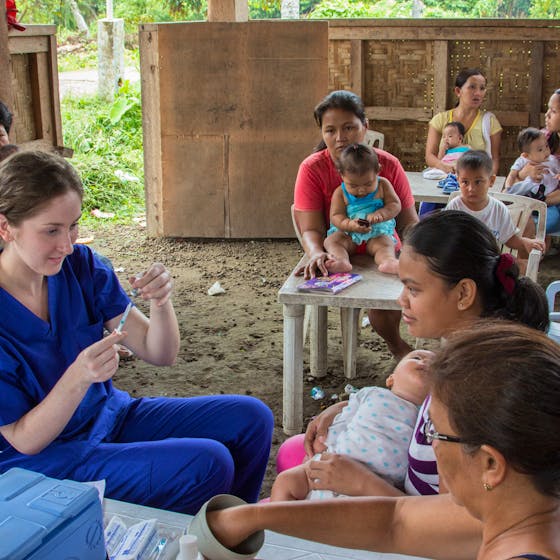
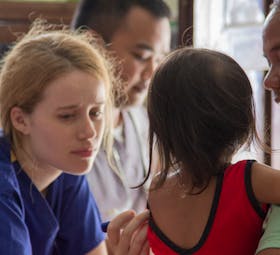
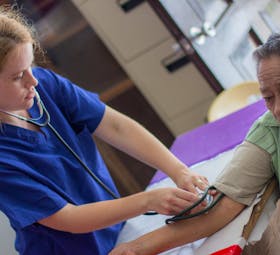
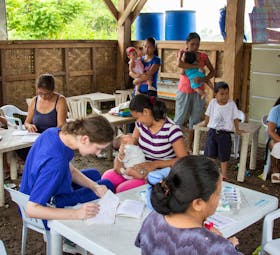
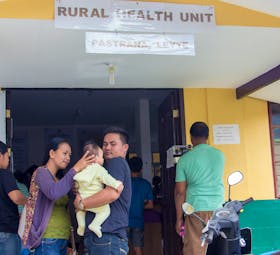

 5
5

